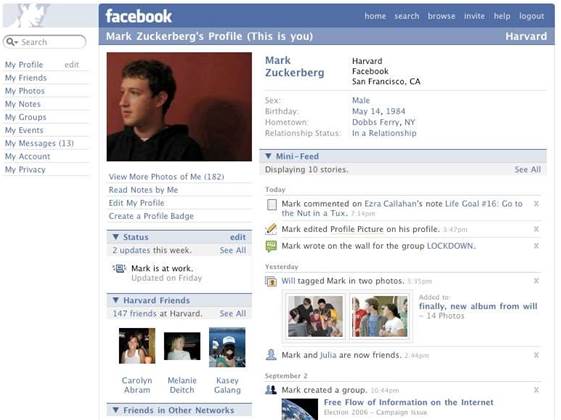Social networking giant Facebook has denied reports in the press that it is selling details of its 150 million users to multinational companies for market research purposes.

The reports are in response to the launch of a Polling Ad by Facebook at the World Economic Forum in Davos, which allows advertisers to poll a selection of users in order to test the waters for new marketing initiatives.
The Polling Ad will present a user with a question and then show how many users have already voted, including the number of his or her friends who have taken part. Once a user engages with the poll, the results are shown and, if a user selects the link to see how friends voted, friends' pictures will appear below their respective responses.
Facebook said that advertisers can select the members they poll based on profile information such as whether the user likes fitness or cooking. The move has prompted a wave of reports accusing Facebook of setting up a "market research database".
But Facebook has argued that the Polling Ad is not a market research tool, at least in the traditional sense of the word, because advertisers will not have access to the personal data. It will all be anonymous, according to the company. The Polling Ad is simply the latest in a line of Engagement Ads which Facebook offers businesses, it added.
Engagement Ads, first launched in August 2008, allow advertisers to interact with members without whisking them away to another site and in a manner that is familiar to social networkers. Brands can create virtual items that users can give to one another, and users can become a fan of brands they like.
The ads have always been able to target Facebook users based on their profile information, and the Polling Ad does not break from this tradition, Facebook said.
Pontus Kristiansson, chief executive at e-commerce analysis firm Avail Intelligence, said that, although the Polling Ads are bound to reignite concerns about monitoring consumer behaviour for targeted marketing, and the " Big Brother is watching you" feeling, the move should not be seen as negative by privacy activists.
"Is it not the case that tailored information is always more relevant and actually less intrusive than an impersonal approach?" he pointed out.
"Marketing can be tailored using just an anonymous site visitor ID, avoiding the use of personally identifiable information to target consumers, and addressing privacy concerns."
Facebook said that its position on handing over personal data to third parties is outlined in its privacy policy, and argued that targeted advertising benefits users.
"You can know more about the world around you, and where there are advertisements, they're more likely to be interesting to you," the company said.
"For example, if you put a favourite movie in your profile, we might serve you an advertisement highlighting a screening of a similar one in your town. But we don't tell the movie company who you are."
Facebook is not the first professional networking site to be accused of betraying its users. Professional networking site LinkedIn sells advertising space at a cost, which is based on the professional position of the user a business wants to target. IT professionals are the most expensive.
Additionally, when LinkedIn was first launched, an introduction between users could only take place if they carried a loose connection, but LinkedIn's InMail now allows individuals to search for individuals they do not know - at a cost.
It is also not the first time there have been concerns for the privacy of Facebook users.
Past controversies have centered around Facebook's Beaken advertising programme launched a couple of years ago that notified friends of each other's purchases at online shops. More than 45,000 users petitioned against it, causing Facebook to offer members an 'opt out' option.
Additionally concerns arose when it was realised that Peter Thiel, Facebook's initial major donor, had connections with a radical conservative group, Vanguard PAC. Also that Howard Cox, a primary board member for GreyLock Venture Capital, another big Facebook investor, sat on the board for In-Q-Tel, the venture capital wing for the Central Intelligence Agency.
In-Q-Tel aims to find emerging companies and foster development of technology needed by the CIA and other intelligence agencies.
Facebook states on its privacy page that it may share its members information with companies, lawyers, agents or government agencies, "to comply with law, to protect our interests or property, to prevent fraud or other illegal activity perpetrated through the Facebook service or using the Facebook name, or to prevent imminent bodily harm."
A number of groups have started within Facebook to reform parts of the policy.

_(28).jpg&h=140&w=231&c=1&s=0)


_(36).jpg&h=140&w=231&c=1&s=0)





 iTnews Executive Retreat - Security Leaders Edition
iTnews Executive Retreat - Security Leaders Edition
 iTnews Cloud Covered Breakfast Summit
iTnews Cloud Covered Breakfast Summit
 Melbourne Cloud & Datacenter Convention 2026
Melbourne Cloud & Datacenter Convention 2026
 The 2026 iAwards
The 2026 iAwards












_(1).jpg&h=140&w=231&c=1&s=0)



